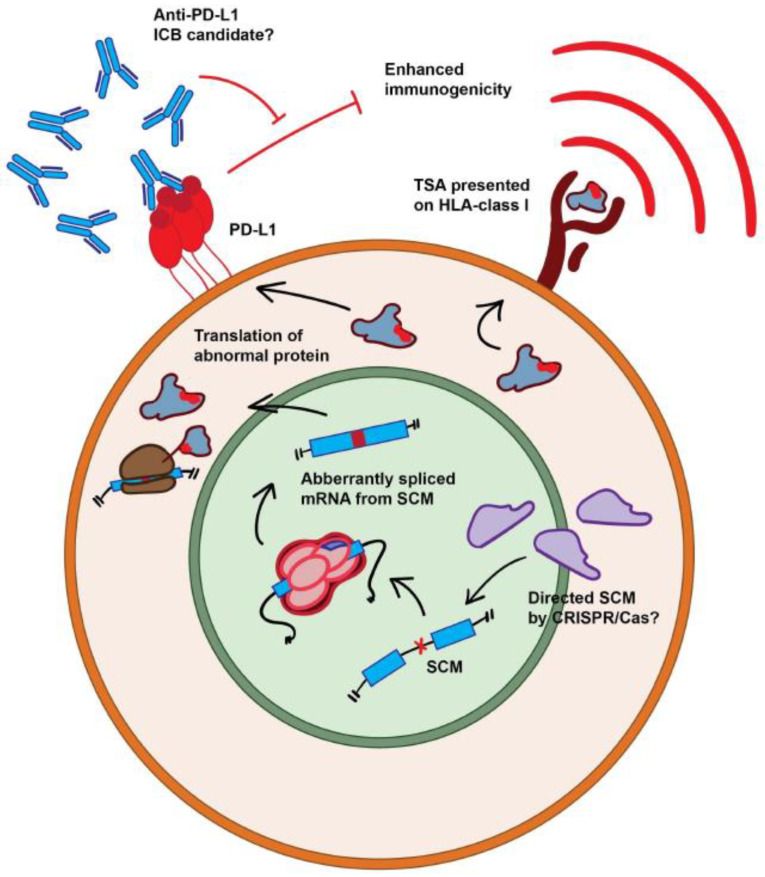Figure 1.
Immunogenic effects of alternative splicing and immune-based therapy options targeting aberrant alternative splicing. Mutations creating novel splice sites (SCM), either endogenic or induced by targeted CRISPR/Cas-based gene editing results in the creation of tumor-specific antigens (TSAs) through the translation of abnormally spliced RNA. Processing and presentation on HLA class I leads to enhanced T cell immunogenicity. The same process has also been implicated in the upregulation of PD-L1, potentially making such tumors candidates for immune checkpoint blockading (ICB) as PD-L1 typically suppresses immune activation. Red blunt arrows show negative regulation.

